FRONTIERS • LAY VOCATION
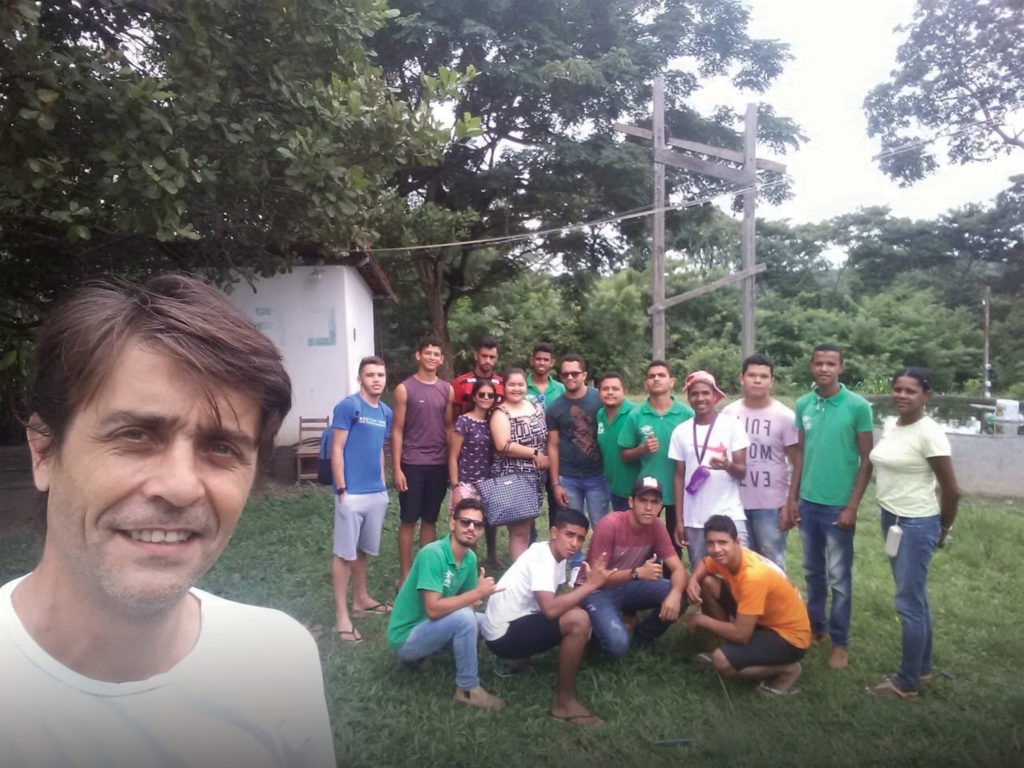
Mission for transformation in Brazil
Upon arriving in Brazil, Xoan Carlos never thought that his three-year commitment as a Comboni lay missionary would become a life-long dedication to the promotion of the rural peasants in the Amazonia region. He shares his journey with Worldwide
BY Xoán Carlos Sánchez Couto | Comboni Lay Missionary, Açailândia, Brazil
MY MISSIONARY commitment was born during my participation in youth groups, in a Salesian youth centre in my city, Santiago de Compostela, Spain. The reflections we made there on the injustices of the world and the role of the Church in these situations led me to get involved in a group of Comboni Lay Missionaries (CLM) that was being created in my city. I followed the formation of the CLMs simultaneously with my university studies in agronomy. When I finished, I was ready to go to the mission and, although I had always asked to be sent to Africa, destiny brought me to Brazil, initially for a three-year commitment, starting in November 1999.
Agricultural school
Knowing the reality of Açailândia, in the state of Maranhão, and in dialogue with the local community and with the Comboni co-ordination, we decided to start working with the rural youth and we chose the proposal of the Rural Family Houses (RFH) project. The beginning was a long road: to gather a good number of families interested in taking on the responsibility of offering to their children a contextualised education; an education which would not lead them out of the rural environment, but allow them to take charge of their own development. Thus, a community agricultural school came into existence, managed through an association of families of peasants and maintained through partnerships with local governments and through the sales of what the students produced by themselves.
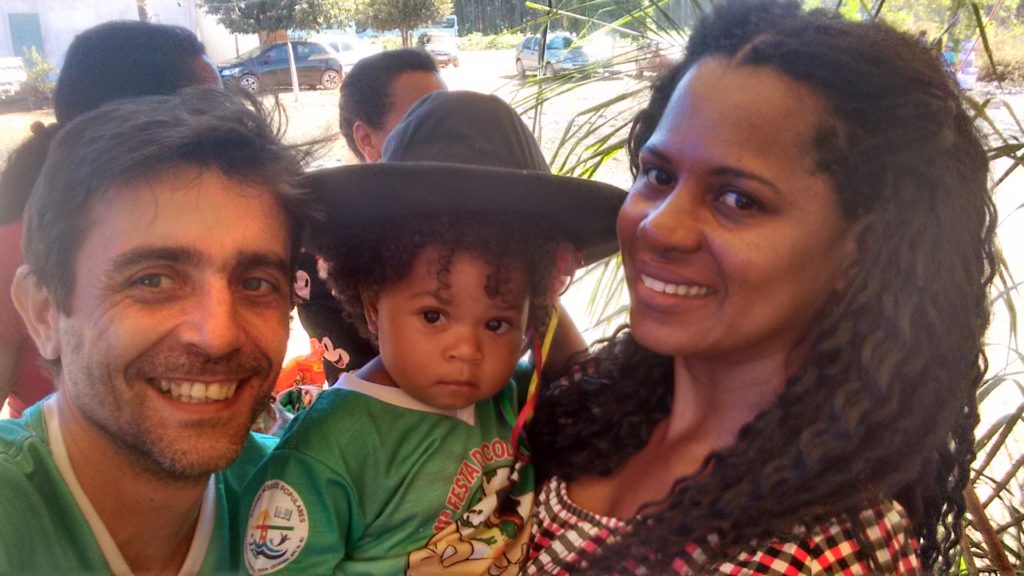
Due to the length of this process of collective construction, my commitment had to be extended. Along the way, I met Dida, a young catechist from Açailândia who became involved in this process and ended up becoming my wife. She married me and my struggles, so in a way she also married the mission.
It was a long road to get the necessary facilities built to run the school, to convince the authorities to pay the teachers and other workers, and the running costs —even being a small project—are high. What was never difficult was to get the interest from the young people. Finally, in 2005 we started the classes, with a group of 35 boys and girls, mainly from agrarian reform settlements, some children of small landowners and some children of the employees of the large estates of the latifundia (large ranches).
Justiça nos Trilhos denounced the human rights violations of peasant and indigenous communities impacted by large mining projects and their transport infrastructures
Rotational methodology
The house follows a methodology called Pedagogy of Alternation, which emerged almost a century ago in France through the alliance of a rural parish priest, a trade unionist and rural families who saw their children going to the city for lack of opportunities in the countryside. The young people stay at the school for a week and return to their families for another week.
Throughout the three years of the duration of the course, this alternation of one week at school and one week with their families is always maintained. In this way, they do not lose their rural roots, the family can count on the help of the young person for work, and the school can deal in a theoretical and practical way with the same activities that the farming family is engaged in on their land at each time of the year. Integrating work, theoretical reflection, participation of the farmers and development of the environment are the four pillars of this pedagogy, which is also very present on the African continent in French-speaking countries.
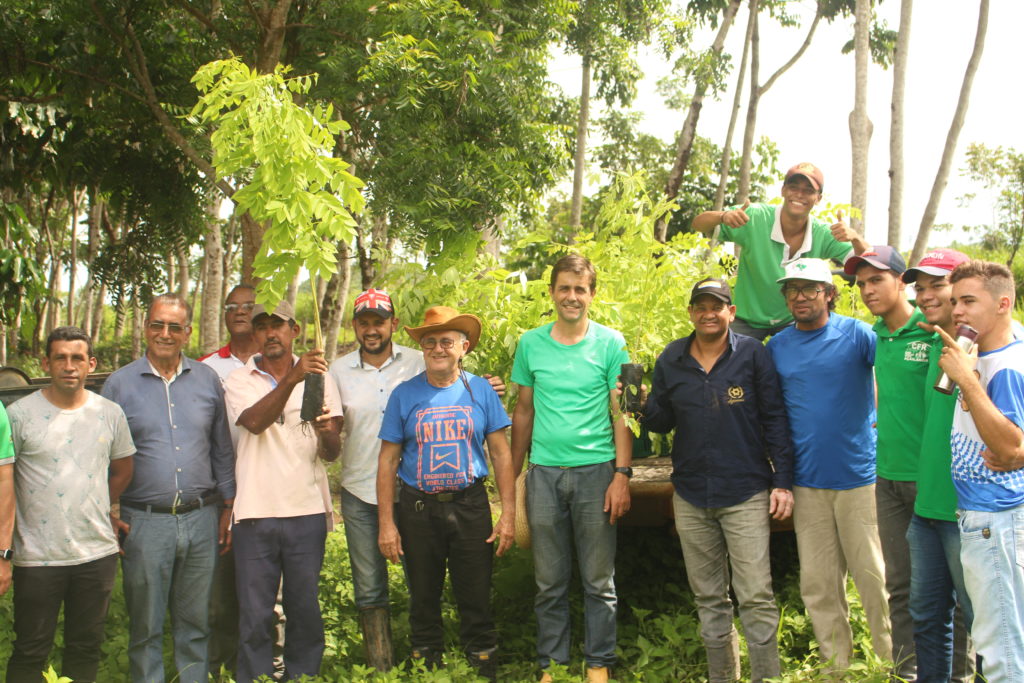
Over the years, other Comboni Lay Missionaries and local lay people have taken over responsibility for the school, although the owners have always been the peasant families, who make the main decisions at an annual assembly and at regular meetings of the board of the association that they have formed to run the school.
After seven years of operation, in 2012, Dida and I assessed that it was time to step aside and let some young people who had studied at the RFH and were already finishing their university studies to take over the reins. We withdrew to retrain, studying in another city. I finished my sociology course and did a master’s degree in Amazonian agriculture; Dida finished her arts course and specialised in school management. On our return we got involved in other projects, always dedicated to the livelihoods of the peasant communities in this corner of the planet, the eastern Amazon, which we combined with supporting the RFH.
Peasants and indigenous rights
At that time, the Comboni Missionaries in Açailândia had started a campaign called Justiça nos Trilhos (Justice on the Rails), which denounced the human rights violations of peasant and indigenous communities impacted by large mining projects and their transport infrastructures. In Brazil, everything is superlative: the world’s largest open-pit mine is in this region, the iron ore that is extracted from the bowels of the Amazon is transported by the world’s largest train to the port of São Luís, from where it is exported almost entirely to China by means of the world’s largest ships, the Vale Max.
Naturally, the social and environmental impacts are also superlative. The communities lose their right to move freely through their territories; since it is very difficult to cross double tracks with heavy train traffic, many people and animals are run over, many houses crack with the train vibration, wells crumble, animals miscarry or produce less than normal offspring; and the noise is deafening twenty-four hours a day.
Young people from various localities come here to spend time learning appropriate techniques adapted to their social and environmental conditions
Justiça nos Trilhos became a human rights NGO and I was invited to work with these communities with the proposal to offer economic alternatives to mining and agribusiness exports because—despite all the impacts—the lack of other employment possibilities ends up pushing many people to seek employment in these mega-projects as the only alternative way of life. Subsequently, the infrastructure created for the export of huge quantities of minerals attracted the attention of large landowners in southern Brazil, who acquired land in this region to produce mainly soya and eucalyptus for export. They take advantage of the same railway and port as the mining companies; and the impacts are further accentuated, not only because of the increase in train traffic, but also because the siege of peasant territories has intensified.
Soya and eucalyptus bring in a lot of money in dollars, and commodity fever has meant that there is no limit to the expansion of these crops. They offer farmers a lot of money to sell their land. When the farmers don’t want to sell it, they ‘accidentally’ spray the fields with the same herbicides they use on their soya plantations, which are not affected because they are genetically modified to resist glyphosate. Thus, the farmers have a total loss of their crops, which immediately translates into worsening their poverty and food insecurity. The only way out is to sell their land—and the same people who caused their economic bankruptcy are there to buy it.
Agro-ecological centre
As strategy, the first step we have taken has been to create a centre of reference in agro-ecology on a piece of land belonging to the Comboni Missionaries. It is also shared by the Rural Family House, where we have a sample of agro-ecological production practices: organic dairy cattle, free-range chickens, pigs raised in the open air, organic horticulture, agro-forestry systems, solar energy, biogas. The idea is to produce in alliance with nature and not against it, as suggested by the idea of integral ecology proposed by Pope Francis in Laudato Si. This centre is called CIRANDA—Centre for Rural Innovation and Agro-ecological Development. We felt the need to start from here because the impacts caused by mining and agribusiness have led to the abandonment of traditional agricultural practices in the communities, so this knowledge is no longer passed down from father to son, as was the custom. Our goal is to rescue this traditional knowledge, combining it with scientific knowledge about organic production. The CIRANDA centre is a field of experimentation and learning. Young people from various localities come here to spend time learning appropriate techniques adapted to their social and environmental conditions.
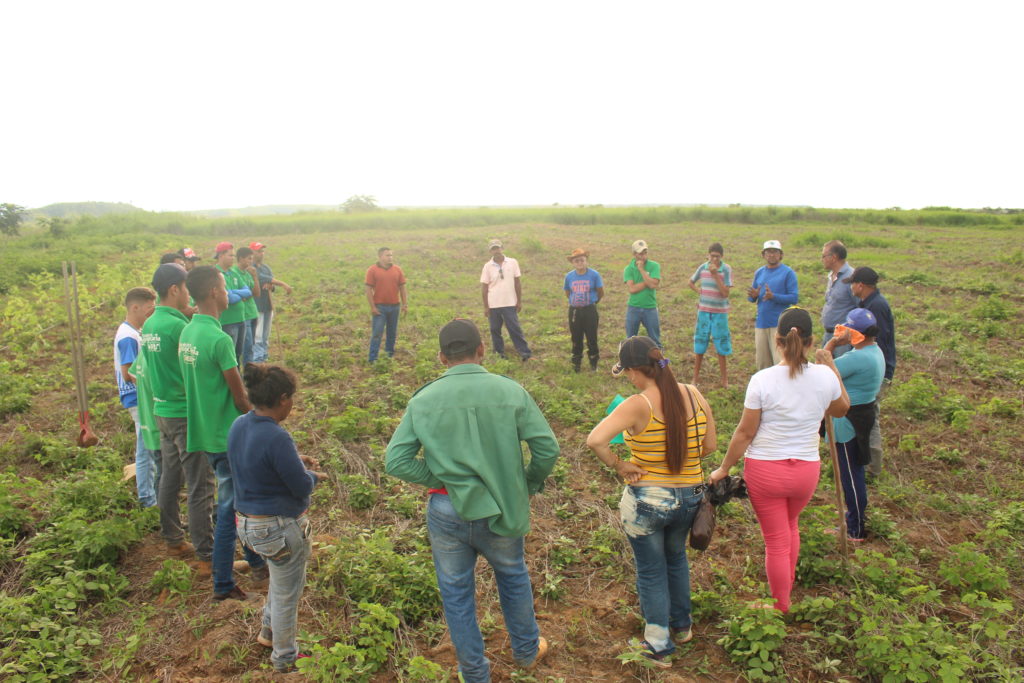
at the rural community of Valle del Sapucaia, Brazil.
A second step has been to do agro-ecology training in the communities. Agro-ecology is not only agriculture, but also solidarity economy, human rights, political awareness, values.
More recently we have started a rotating solidarity microcredit fund, so that families who participate in agro-ecology training can start or improve productive activities that give them food security and sources of income. The loan is for a small amount, which must be repaid after one year. The Rotative Fund Ezequiel Ramin—in homage to the Comboni Missionary killed in the Amazon for his commitment to the peasants—is inspired by the experience of the Grameen Bank in Bangladesh, and by several similar initiatives that have existed in the northeast of Brazil for years. That is why most of the Fund’s members are women. They have more responsibility with the money, they always pay it back and they are concerned that this opportunity is transformed into a better life for them and for all the members of their family. They also have a better ability to work in groups and a broader vision of the community.
As Pope Francis proposes in his encyclical Fratelli Tutti, the economy as a whole has to be oriented towards the common good
Lay missionaries for transformation
We are well aware that these testimonial initiatives at the micro level do not promote real transformations if they are not co-ordinated with structural changes in the economic organisation of the countries. What does this have to do with missionary work? It has everything to do with missionary work, above all, because we are lay missionaries. As Pope Francis proposes in his encyclical Fratelli Tutti, the economy as a whole has to be oriented towards the common good. To achieve this is the specific task of the laity, but also, for lay missionaries, who value inculturation in the peoples who welcome us; this has to be done respecting and starting from traditional and ancestral ways of life. The idea of good living, sumak kawsay in Quechua, is present in one form or another in all Latin American indigenous cultures.
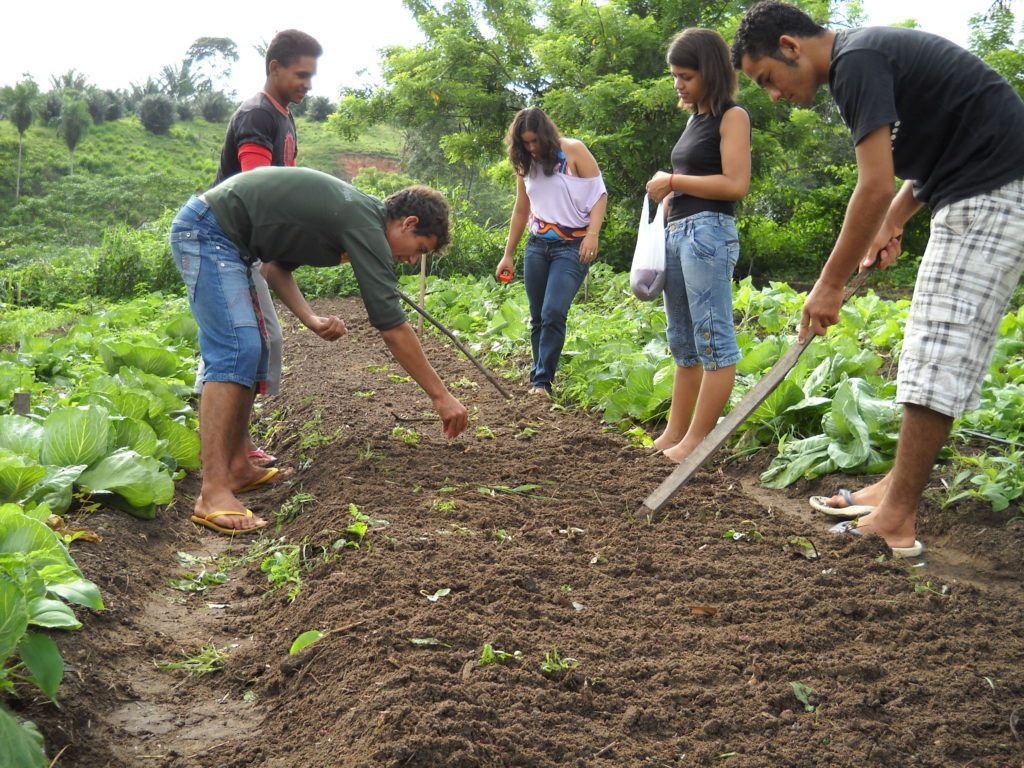
At the same time, being lay missionaries in Brazil, we are stimulated by the missionary Bishop Pedro Casaldáliga. He was inspired by the biblical prophets who were then responsible for passing on to the people the true meaning of events, making, at every moment, God’s plans known. For this reason, we also investigate and denounce the tax juggling scheme by which these large multinationals manage to leave no resources in the countries of the South; they capture and own: 1, the State; 2, the system of administration of justice; 3, the media; 4, and all national and international decision-making spaces. Vale Coorp., the Brazilian multinational mining company that destroys this part of the Amazon, does the same in Zambia and Mozambique. South Africa’s AngloGold Ashanti is one of the main gold extractors in the Brazilian Amazon, causing irreversible impacts on indigenous lands. But Vale’s money is in a small village in Switzerland and AngloGold Ashanti’s money is in the British Virgin Islands. Environmental destruction and extreme poverty are their real legacy in the territories they exploit. Doing mission among the peasants, in the Amazon or in South Africa, is not possible without denouncing these injustices.
| Dates To Remember |
|
April 2 – World Autism Awareness Day 4 – International Day for Mine Awareness and Assistance in Mine Action 6 – International Day of Sport for Development and Peace 7 – International Day of Reflection on the 1994 Genocide in Rwanda 7 – World Health Day 15 – Good Friday 17 – Easter Sunday 21 – World Creativity and Innovation Day 22 – International Mother Earth Day 23 – English & Spanish Language Day 24 – International Day of Multilateralism and Diplomacy for Peace 25 – World Malaria Day 28 – World Day for Safety and Health at Work 30 – Our Lady, Mother of Africa 30 – International Jazz Day May 1 – St Joseph the Worker, Workers’ Day 3 – World Press Freedom Day 8 – Remembrance and Reconciliation for Victims of Second World War 8 – World Migratory Bird Day 15 – International Day of Families 17 – World Telecommunication and Information Society Day 20 – World Bee Day 21 – World Day for Cultural Diversity for Dialogue and Development 22 – International Day for Biological Diversity 29 – Ascension of the Lord 29 – International Day of UN Peacekeepers 30 – World No-Tobacco Day |
